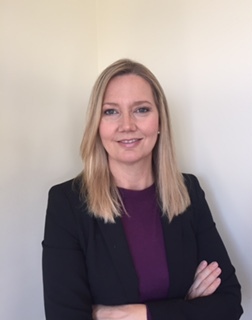In April, BCcampus began featuring teaching and learning across B.C.’s post-secondary institutions. Our first three instalments introduced Tim Paul from Douglas College, and the second, Janni Aragon at the University of Victoria and Carrie Nolan from Northwest Community College. In this post, we talked to Laura MacKay, the Manager of the Centre for Teaching Excellence (CTE) at Capilano University (Cap U).
The new CTE launched August 1, 2017, so it is a new venture. Cap U is also one of the province’s seven designated special-purpose teaching universities.
Post by BCcampus’ editorial team

Laura MacKay tells us what exactly that means, and much more, below.
BCcampus: Can you explain the term “special-purpose teaching university”?
Laura MacKay: We see our main role as dedicated to the instructional and educational experience of students. Ultimately, it’s about student success and how we as an institution and as faculty support student learning. For example, we are very excited to be creating a Centre for Student Success. This involves renovating the main floor of the library building and co-locating and coordinating student-learning support services for students. This new Centre will provide students with a ‘one-stop’ service centre for their academic and learning needs that will offer flexible spaces for group, collaborative, individual and open study, supported by technologies and integrated academic and student support services.
BCcampus: What do you love about your role at Cap U?
LM: My work is varied and driven by faculty needs. No two days are the same. Some days I facilitate workshops while others, I consult with departments or individual faculty, develop resources and our website, meet with our Faculty Associates, or attend meetings.
Capilano is truly a community and I love being part of it. I am fortunate to work among faculty, staff, and students who are very passionate about what they are doing and it’s inspiring to be around. I am also excited to help create the vision for the CTE and Faculty Commons.
BCcampus: What can you tell us about the new Centre? What are its primary goals?
LM: The centre launched August 1, 2017, so is very new. It is now part of the Division of Student Success, which formalizes the importance of teaching and learning in student achievement. Having the infrastructure in place will enable long-term planning, help faculty access resources, and develop their teaching practice.
The first step was to have programming up and running for September for faculty. The intention is to develop programs and support that would be easy to implement and have a big impact. This was a short timeline but we now have Instructional Skills Workshops running, teaching squares, faculty mentoring, and a productive beginning series of workshops for new faculty.
Its goals are to:
- foster and enhance a culture of excellence in teaching and learning, supporting student academic success;
- develop a Faculty Commons & Centre for Teaching Excellence; and
- to connect scholarly inquiry to teaching effectiveness and practice. The work of the Centre will nurture student learning and effective pedagogies so that students, faculty and campus partners can work collaboratively toward student success.
We hope to have a faculty Certificate in University Teaching next year as well as the new space for our Faculty Commons. For the future, I would love to see faculty engaged in more Scholarship of Teaching and Learning work to share knowledge of teaching practice in small classes.
BCcampus: How is Cap U ahead of the curve in innovation? What’s coming that has you excited?
LM: We have a strong e-portfolio project now in its second year at Capilano. The project has been incorporated into the curriculum of several courses; for example, all English 100 courses. We anticipate the creation of more than 1500 new portfolio sites on a university-hosted WordPress multisite for the 2017/18 academic year. In support of this, we are also very excited to be hosting the annual conference of The Association of Authentic, Experiential, and Evidence-Based Learning (AAEEBL) next July.
BCcampus: And last, what is unusual about Cap U? What might surprise us?
LM: Perhaps how forested the North Vancouver campus is and that the majority of buildings are named after trees (Birch, Fir, Alder, Cedar, Arbutus, Willow, Dogwood, Maple). We often have wildlife (bears, cougars, deer, and raccoons) wandering the campus.
People also might not know we have won awards for sustainability (the RCBC’s 2012 Environmental Award in the Educator’s category for forward thinking in sustainability, and an international sustainable tourism award for our community-based tourism project in Vietnam).
Learn more:
- Capilano University
- 4 Questions with Tim Paul on the evolving role of teaching and learning centres
- Connecting the North: Talking Teaching and Learning with NWCC’s Carrie Nolan
- Bridging the gap with UVic’s Technology Integrated Learning Department
Join us at an upcoming event:
-
Pressbooks Training Webinar – Intro + Intermediate 3 – Nov 28, 2017
-
Festival of Learning 2018 – May 28 – 30, 2018
